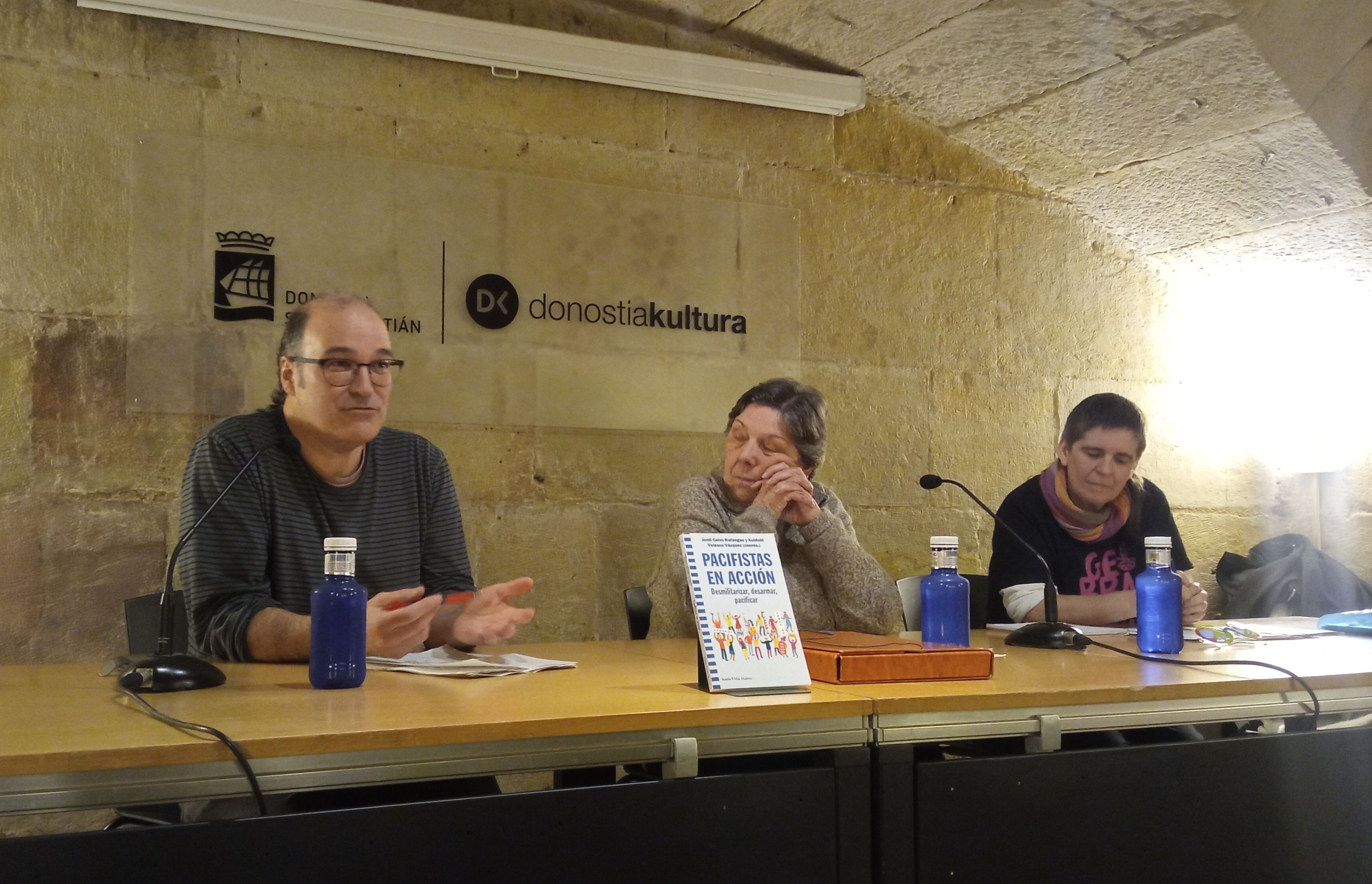
- One year after the Brute War, on Thursday in San Sebastian the Anti-Militarist Peace Action and the Centre Delàs d’Estudis per la Pau organise an anti-militaristic reflection on the conflict in Ukraine. Gabriela Serra Frediani and Koldobi Velasco Vázquez of the Catalan organization have taken the floor. They have seen many shortcomings in the responses to this war.

Serra begins his speech by saying that there is confusion and concern within anti-boundary groups because the citizen’s response to the current Ukrainian war has nothing to do with that of twenty years ago, that of Iraq in February 2003. Millions and millions of people took to the streets to denounce the American invasion, which has not happened now. Putting on the table the input movement, he points out that a country with a long anti-militarist history has become a desert. “Why?” asks Serra.
He says there's another kind of war behind demobilization and elimination of the answer: cognitive war. Cognitive war is produced by the sum of psychological war and information war, which acts through new social networks and new information and communication technologies deployed in recent years. Through false and disfigured ideas, it influences the behaviors and thoughts of citizenship, and the battlefields are our leaders anywhere in the world.
Another variable that has led us not to give a clear answer within the left is the change in the type of war. “The bad guys are not the usual ones, America.” He's a descendant of Vladimir Putin Lenin for a particular part of the left. But now, unlike the Cold War, there are no major ideological differences between the two sides. It is now an economic and geopolitical war. Two great enemies fight each other, “one bigger than the other,” adds NATO, referring to the US and the European Union. And this situation has sparked a debate among the pacifists.
In the end, in Question Time, a listener questions this story of the war between the two great empires. He adds that it is limited because in this war there is an invading and an invading country. Serra replies that Ukraine is a puppet in the hands of the United States against Russia and that Ukrainians are unimportant. Because what is at stake is superiority at world level, where the empire, with China as the main enemy, is winning the war: the war in Ukraine has brought the resurrection of NATO; it has added two new members, Sweden and Finland; it has been seen that Russia has military shortages; Germany, as a European factory, has set aside Russian gas and has started working with the warring industry on the rest of the continent.
However, Serra believes that other social phenomena are hidden after the war in Ukraine. He says that we are in an economic, energy and social crisis. And returning to the initial question, he adds that cognitive war is creating young generations educated in violence and militarism, used to responding with violence to insecurity and conflict. Together with the Mordaza Act, which will facilitate the control of the uprisings caused by the crisis. Because, in short, “this war will affect workers more”.

Velasco has gathered Serra's witness in his speech, maintaining social conflicts, but instead of delving into the nature of the war, he has expanded his discourse by deepening into the antimilitarist perspective. He has also stressed that patriarchal and colonialist capitalism rich in surnames needs militarism in order to maintain social control, and in this sense he understands it as social war.
Coinciding with Serra, “Who wins in a war? It raises the question “Who loses?” and states that wars do not differ from class war, but support the processes of accumulation and domination of the rich. It has thus come to the conclusion that the social struggles we make bring peace.
“How to cook antimilitarism in the permanent war?” Velasco said that we must demilitarise our territories, our desires and our bodies. To this end, the first thing to do is to highlight militarisation and conflicts and then proceed to demilitarisation. The economic, social and ideological resources that allow war must be broken. From nonviolence and the revolutionary perspective that seeks social peace.
To this end, it has put on the table a number of measures to do before, during and after the wars. Social justice, the culture of peace and the tools needed to resolve conflicts, the departure of NATO and the reduction of the military budget until it is abolished, among other things, are necessary. Spreading anti-war attitudes during the war, protecting people and organizations objecting to conscience in Russia, Ukraine and anywhere, not protecting any of the competitors, protecting the attacked, breaking links with competing countries, etc. And then work on conflict solutions and peace conventions.
“When people ask us what alternative antimilitarism poses, we answer that we have been working for decades”: demanding here and internationally the reduction of military spending, boosting civil disobedience, denouncing and hampering the arms industry and trade. But it underlines the importance of working on it the construction of alternatives: the penetration of self-managed spaces, the construction of food, energy and communicative sovereignty and the struggle for social justice. All this is fighting wars and militarisation and for peace, it is over.